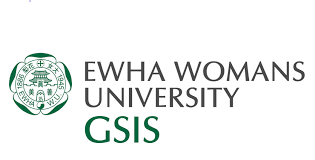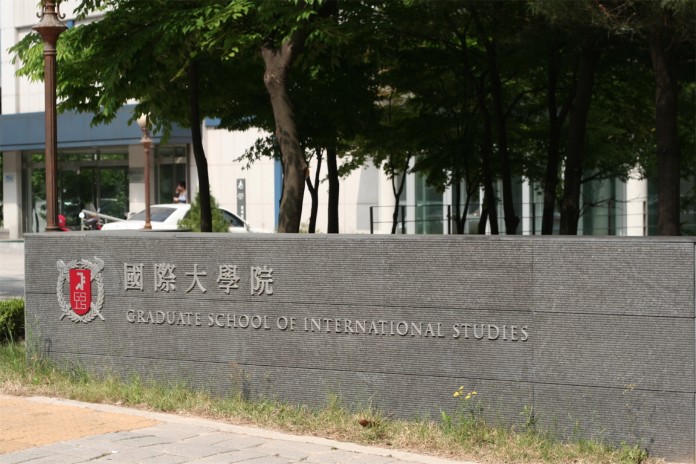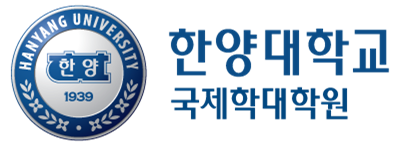Are you thinking to take international studies program abroad? Are you still looking for which school that might meet your needs? Are you considering to continue your academic journey to South Korea? Then, this article is absolutely for you! Alvin, columnist of Indonesia Mengglobal, has summarized well the international studies program in South Korea for your guidance.
***
“Should I be able to speak the local language before I arrive to study?”
This is a typical question when some prospects are looking for opportunities for furthering studies in non-English speaking countries. South Korea is also part of it.
So many questions come to my mailbox regarding this question, “Are we going to use Korean for the study?”
The answer is supposed to be yes and no. It should always be emphasized that it depends on the major and department of your destination.
This is common that even in some non-English speaking countries, with high literacy in English, e.g. Scandinavian countries, some courses are offered in local language.
However, most of the non-English speaking countries never stop offering English-taught courses to attract international students to come to their institutions.
Of course, the presence of international students will bring benefits for universities as in for international reputation and broadening the knowledge atmosphere itself.
This strategy can be seen in South Korea by the establishment of the Graduate School of International Studies (GSIS) in almost every major university.
This interdisciplinary program offers a wide range of studies that pour up economics, political science, law, anthropology, area studies, histories, international relations, and other academic disciplines into a stirring bowl of fascinating international studies.
The academic discipline that will equip graduate students with many lenses on how we perceive our contemporary world.
While this program seems very suitable for prospects with international relations or political science background, the graduate students enrolled in this graduate school are coming from vast academic backgrounds.
And the good thing is almost eighty percent of the courses are taught in English, with several exceptions for the Korean studies specialization.
This article on the Graduate School of International Studies in South Korea will be apportioned into two parts. This first part will provide the introduction that you already read and share 5 (five) renowned GSIS in South Korea’s universities.
And in the second part that will be published a month later, the article will provide another 5 (five) renowned GSIS in South Korea with concluding remarks on several reasons why the GSIS(s) could be the best option for you if you want to continue study in Korea without being anxious on how you’ll grasp the Korean language for your study’s success.
Now, I will provide the first five GSIS that can be your choice for continuing study in South Korea. Most of the contents are the summary or excerpts from each institution’s websites.
For further inquiries, kindly diligent to observe more while the links to the respective sites are provided at the end of each part. Happy reading!
- Seoul National University GSIS (SNU GSIS)
SNU is ranked as the best university in South Korea from QS Ranking 2021. Among the top 100 in the world, SNU ranked 37th. In the specific subjects, SNU ranked 31st in Politics & International Studies.
SNU is ranked 3rd in Asia within this subject after the National University of Singapore (NUS) and the University of Tokyo. SNU GSIS is also considered the best in South Korea based on this QS ranking.
History of SNU GSIS was started in 1989 with the establishment of the Center of Area Studies, which later expanded as School of International and Area Studies in 1997.
The SNU GSIS itself was established on 1 March 2003, as the premier graduate school of international affairs and area studies in Korea.
With the motto “think globally, act regionally,” SNU GSIS educates global leaders for an increasingly complex global society.
As both professional and academic institution, the curriculum is based on an integrated, multidisciplinary approach, which connects theory and practice.
As of September 2020, there are 125 Korean students and 159 international students enrolled in GSIS; yes, half of the student body is international students.
SNU also started its BK21 program, one of the most prestigious research grants in South Korea. For international studies’ research purposes, SNU GSIS may become your best choice in South Korea.
The SNU GSIS offers a two-year Master’s Program in International Studies. Courses are mainly conducted in English, with some Korean, Japanese, and Chinese elective classes, depending on the major.
The curriculum is based on four major divisions of study:
- International Commerce;
- International Cooperation;
- International Area Studies; and
- Korean Studies
Further information on SNU GSIS can be seen on this site.
- Korea University GSIS (KU GSIS)
Korea University GSIS is one of the oldest international studies’ institutions in South Korea, which is already launched in 1991.
KU GSIS has now become one of the major programs at Korea University since KU is also most renowned for its humanities and social science program.
Nearly 500 students and 40 faculty members, including an adjunct professor now becoming the heart of KU GSIS’s life.
KU GSIS also has several significant cooperations with international organizations and universities abroad for internship and exchange programs.
This is including the collaboration with the United Nations Development Program (UNDP) and the World Intellectual Property Organization (WIPO).
In addition to the conventional master’s and doctoral programs, KU GSIS also provided a 3+2 combined/dual degree program for prospects who want to complete both Bachelor’s and Master’s degrees in five years.
The curriculum based on these major divisions of study:
- International Commerce
- International Development and Cooperation
- International Peace and Security
- Area Studies (East Asian Region, European Region, North American Region)
- Korean Studies
Further information on KU GSIS can be observed in this site.
- Yonsei University GSIS
The Graduate School of International Studies at Yonsei University was established in 1987, as a pioneer of Korea’s professional studies programs.
At present, Yonsei GSIS is also still Korea’s leading professional graduate school of international studies.
The dynamic and rigorous curriculum equips students with theoretical knowledge and practical skills necessary to excel globally in the private and public sectors.
The Yonsei GSIS earned the distinction of being a “university to produce international leaders” by the Ministry of Education and was awarded the status of “official professional school” in November 1999 to recognize its global competitiveness and renowned doctoral programs.
Yonsei GSIS also has the highest foreign student enrollment among other GSIS. The international atmosphere will be one of the highest remarks in Yonsei GSIS.
Again, as Korea’s first professional school dedicated to global affairs, Yonsei GSIS has one overriding mission as stated in the Dean’s remarks: to enable the Yonsei GSIS graduates to become members of a “Global Corps.”
The curriculum is based on these major divisions of study:
- International Cooperation;
- International Trade, Finance & Management; and
- Korean Studies
Further information on Yonsei GSIS can be observed on this site.
- Ewha Womans University GSIS (Ewha GSIS)
Ewha GSIS was established in 1997 with a mission to train young women as global leaders in the fields of international trade, international business, development cooperation, and international relations.
Ewha GSIS has a winning program and a proven track record of producing global leaders. Ewha is also the largest women’s university in the world.
Ewha GSIS is the only school in the Republic of Korea with a dual M.I.S. degree program in conjunction with the Elliot School, George Washington University (Washington, D.C.).
After completing three semesters at Ewha GSIS and two semesters at the Elliot School, students will receive two Master’s Degrees in International Studies.
Ewha GSIS is the hub for training 21st-century global leaders and is the strategic choice for women seeking the best education, the most dynamic atmosphere, and the greatest competitive edge any program can offer.
In short, Ewha GSIS is the only program of its kind in the Republic of Korea to offer exceptional leadership opportunities and courses specifically geared for women leaders. Yes, this Ewha GSIS is exclusively for women’s future students.
The curriculum is based on these major divisions of study:
- International Trade;
- International Business Development;
- Development Cooperation;
- International Relations;
- Korean Culture; and
- Teaching Korean as a Foreign Language
Further information on Ewha GSIS can be observed on this site.
- Hanyang University GSIS
Hanyang GSIS is unique based on the programs offered. Hanyang GSIS offers specialized area studies, including Russian Studies, Chinese Studies, and American Studies that some of the courses will be taught in each respective language.
Korean Studies in Hanyang GSIS is also taught in English, since it is tailored for international students.
A curriculum focused on specific countries’ regional studies, as area studies, was created after the realization that experts who can conduct general studies on economically successful countries and are specialized in practical business were in need.
Previously, the Hanyang GSIS was established as Hanyang Graduate School of Asia-Pacific Studies in 1997, with the Asia-Pacific Research Centre (APRC) embedded to the institution.
The curriculum is based on these major divisions of study:
- Russian Studies;
- Chinese Studies;
- American Studies;
- Korean Studies;
- Korean Language Education and Korean Studies;
- Global Social Economy; and
- Global Intelligence
Further information on Hanyang GSIS can be observed on this site.
These are five of the leading GSIS in South Korea, while other five GSIS will be also introduced in the next month’s article.
Any inquiries regarding GSIS in Korea can be sent kindly through my Instagram @Qobulsyah or LinkedIn Alvin Qobulsyah.
Until then, see you in the next article and happy researching for your further graduate school. See you in Korea!











